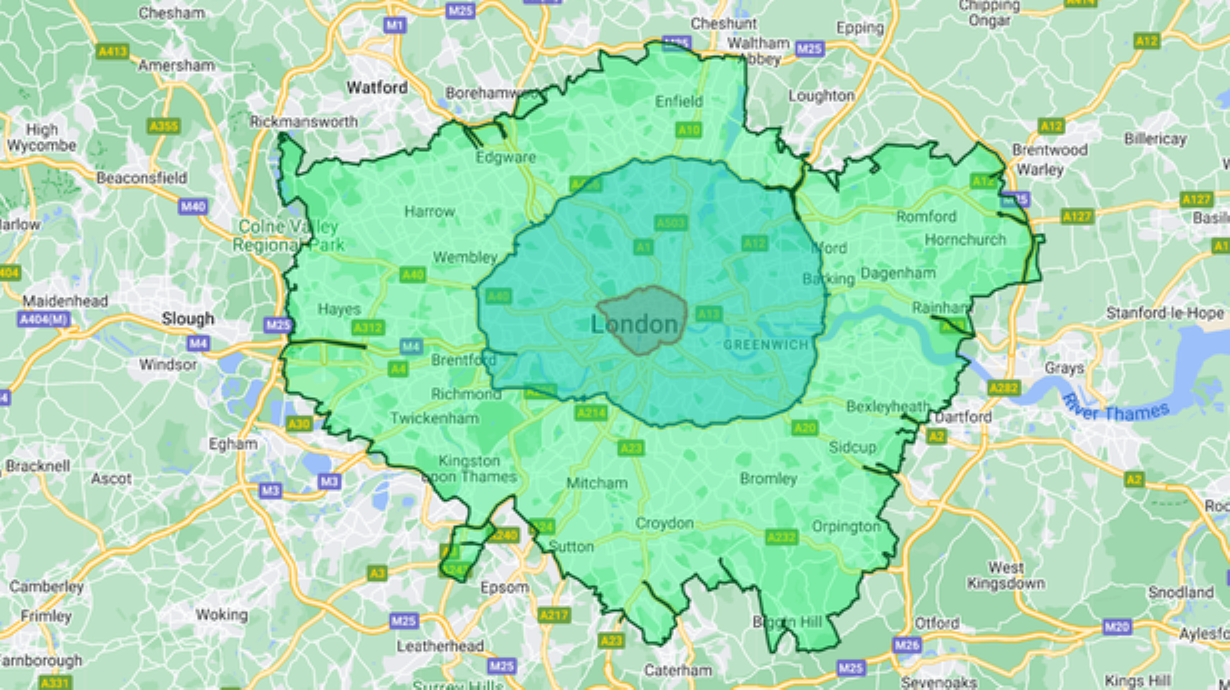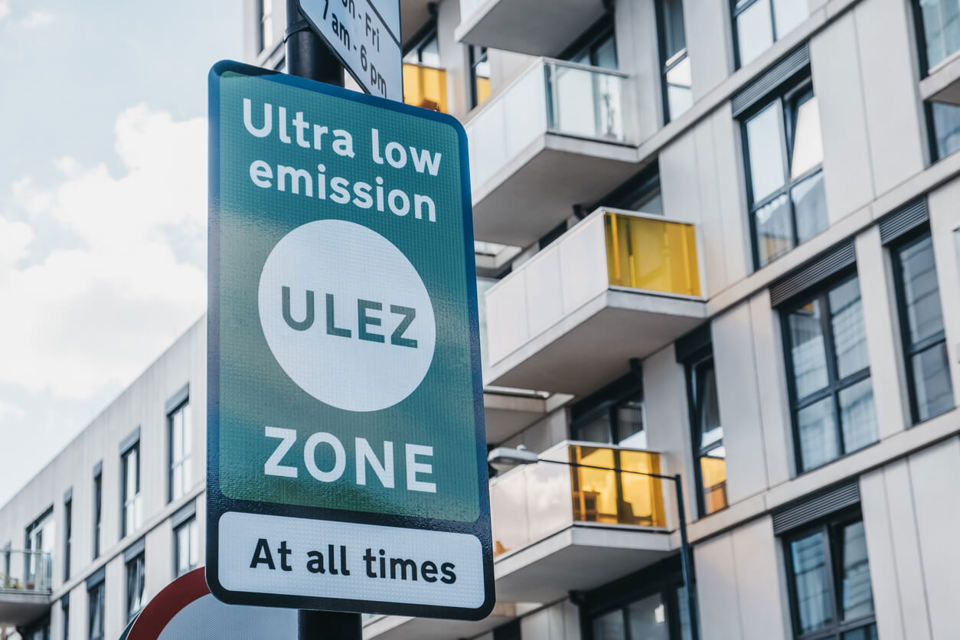London’s expanded ultra-low emission zone (ULEZ) goes live from today (Tuesday, August 29) as new research suggests a quarter of fleets are concerned about the expansion of low emission zones.
The expanded ULEZ covers all London boroughs, meaning motorists driving a non-compliant car or van will face £12.50 daily charge to drive into the zone.
To comply with the expanded ULEZ, petrol cars and vans must be Euro 4 and diesel cars and vans must be Euro 6. Motorcycles and mopeds must be Euro 3.

The UK currently has 13 low emission zones (LEZs), clean air zones (CAZs) or zero emission zones (ZEZs), including the London ULEZ.
At the moment, nine zones/areas charge non-compliant vehicles an entry fee, with Penalty Charge Notices (PCNs) issued to drivers who fail to pay the daily charge.
Drivers of non-compliant vehicles failing to pay the £12.50 daily charge for London’s ULEZ, for example, will face a fine of up to £160.
Most zones have different charging criteria. For example, private cars entering the Bath CAZ are currently exempt from a charge, while vans, HGVs and private hire vehicles not meeting the required standards are subject to charges.
In Scotland, LEZs in Glasgow, Aberdeen, Dundee and Edinburgh place a ban on vehicles that do not meet the emissions requirements, with no ability to pay a fee to enter the zone.
Oxford introduced the UK’s first ZEZ last year, requiring non-zero-emissions vehicles to pay a daily entry fee when operating in the zone.
In a survey of fleet managers, conducted by Samsara, one-in-four respondents (27%) said that they are worried about the expansion on low emission zones.
However, almost three times as many, some 76% said that reducing carbon emissions/improving sustainability is a priority in 2023.
Furthermore, one in-three respondents (69%) told Samsara that moving to electric vehicles (EVs) will have a positive impact on their business. Almost half (45%) believe that the future of their fleet is electric and more than one third (36%) believe hydrogen will have a role to play.
Philip van der Wilt, senior vice president and general manager for Samsara in the EMEA region, said: “While there are environmental benefits in creating low-emission zones, it comes at a cost to fleet operators looking to carry out their everyday operations, particularly in terms of route planning and guaranteeing delivery times.
“The adoption of cleaner, more efficient vehicles will go some way to address this issue. For some, ULEZ will serve as a catalyst for transitioning their fleets to EVs and becoming a more sustainable business.”
In the case of London’s ULEZ, Transport for London (TfL) is offering funding to fleets to help them make the switch to cleaner vehicles.
Earlier this month, the scrappage payment for vans was increased from £5,000 to £7,000, while grants to replace a non-compliant van with an electric van rose from £7,500 to £9,500.
Small businesses and sole traders are able to scrap three vans or minibuses.
In addition, payments to fleets retrofitting vehicles were increased from £5,000 to £6,000.
Additional support is also available to charities, with payments available for minibuses increased from £7,000 to £9,000, while disabled Londoners saw wheelchair adapted vehicle grants double from £5,000 to £10,000.
Since the changes were introduced, TfL said that 204 small businesses have had their applications approved and £1.45m has been committed.
Thom Groot, CEO and co-founder of The Electric Car Scheme, said that the expansion of London’s ULEZ has been “a long time coming”.
He explained: “London’s dirty air has contributed to countless health problems that wouldn’t have occurred had we all acted sooner.”
“For over a decade we’ve been talking about charging drivers for these emissions and have made great progress with the original low emission zone and then ultra-low emissions zone.
“It makes total sense to expand the zone in London - and I would urge other cities to consider doing the same.”
“It is reasonable that there has been serious debate about how this scheme could impact those facing financial hardship,” he added.
“But now that the court case against ULEZ has been quashed and the zone is going into force it is time for leaders in politics and business across the city to stop squabbling and come together to make the scheme a success.
“Businesses in outer London who are worried about the effect of ULEZ on their customers and staff can do some practical things to minimise any potential impact.
“Finding and clearly communicating the best routes to their business through public transport will help customers and staff who may no longer be driving - although it’s worth remembering that the vast majority of cars are already compliant.
“Offering public transport vouchers to staff can be a great way to make sure they can reliably get to work affordably.”





















Login to comment
Comments
No comments have been made yet.